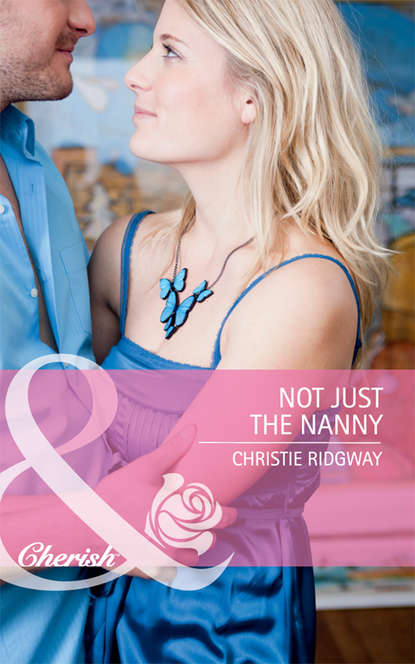
Полная версия
It's a Boy!


Heddy watched Lang carry the sleeping child out to his SUV.
As she did, devouring the view, her gaze riveted to the man she was about to see much more of, she realized that somewhere deep down, on a level that was purely instinctive and primitive and absolutely out of her control, she might be experiencing an attraction to him.
An attraction she didn’t want to have.
An attraction she couldn’t have, especially not now that she was in the same position with him that her mother had been with his father once upon a time.
About the Author
VICTORIA PADE is a USA TODAY bestselling author of numerous romance novels. She has two beautiful and talented daughters—Cori and Erin—and is a native of Colorado, where she lives and writes. A devoted chocolate lover, she’s in search of the perfect chocolate-chip-cookie recipe.
For information about her latest and upcoming releases, and to find recipes for some of the decadent desserts her characters enjoy, log on to www.vikkipade.com.
It’s a Boy!
Victoria Pade

www.millsandboon.co.uk
MILLS & BOON
Before you start reading, why not sign up?
Thank you for downloading this Mills & Boon book. If you want to hear about exclusive discounts, special offers and competitions, sign up to our email newsletter today!
SIGN ME UP!
Or simply visit
signup.millsandboon.co.uk
Mills & Boon emails are completely free to receive and you can unsubscribe at any time via the link in any email we send you.
To the real Carter.
Such a character and so much fun. You’re just great!
Chapter One
“No, Carter, you can’t eat cheesecake with your hands!” The man groaned. “Oh, sure, now scratch your head with cheesecake hands. Great. Perfect. Cheesecake in the hair. Can you just stop? Please …”
Heddy Hanrahan was witnessing the fiasco of an intensely hunky business-suit-clad man ineptly dealing with a little boy Heddy guessed to be about two years old.
They were sitting at a table in her small cheesecake shop. And since they were her only customers late on that Monday afternoon, and the man was having such trouble with the very, very cute little boy with the big blue eyes and the now-cheesecake-laced light brown hair, it was difficult for her not to keep glancing in their direction.
To distract herself, she turned her back to them and faced the mirror that lined the wall behind her counter.
This time it was her own reflection that she looked at. And it seemed to her that worry marked her face.
She’d hoped that business would pick up when the magazine article came out saying that her cheesecakes were Colorado’s best. And it had. But only slightly. And now that it had been two weeks since the article, she was back to business as usual.
And business as usual meant that business was almost nonexistent.
Which was not good.
She raised her eyebrows to relax the line that sometimes formed between them, then lowered them to their usual position over her hazel-colored eyes.
Her situation was bad enough—she didn’t need wrinkles, too.
She also thought that worry was making her ordinarily fair skin even paler than it normally was, which wasn’t good, either. The fair skin came with her dark copper-colored hair and it didn’t take much to wash her out. The last thing she wanted was to be the same color as her cheesecakes, so she pinched her cheeks and made a mental note to use more blush tomorrow.
Her hair was her best asset, though, so she accepted the fair skin as a trade-off. The dark russet locks that fell to five inches below her shoulders were thick and curly—not kinky-curly but wavy-curly. Enough so that even when her hair was pulled up—the way she always wore it in the shop or when she was making the cheesecakes—it was full and just slightly billowy, gently framing her face without being stark.
Although it was a mystery to her why not looking stark mattered so much to her at this moment …
Certainly it couldn’t have anything to do with the attractive man who was her customer because that would just be ridiculous.
She turned away from the mirror and made herself appear busy, leaning into her display case and needlessly adjusting the assortment of cheesecakes that she sold whole or by the slice.
Too many of them were still uncut, but she tried not to let worry creep in again. She had customers, she told herself, that was something….
Glancing through the glass front of the display case, she saw the man using paper napkins in a feeble attempt to get the cheesecake out of the child’s hair. Because he was too intent on that to realize she was watching, she went on watching as she stood again, making sure as she did that the white blouse she had tucked into her jeans was still tucked in in back.
There just wasn’t anything else for her to do but monitor her lone customers. It wasn’t as if she couldn’t keep her eyes off the man. Despite the fact that he was one of the best-looking men she’d ever seen. Things like that didn’t matter to her.
But he was one of the best-looking men she’d ever seen.
He had dark, dark brown hair the color of espresso-laced chocolate, cut short on the sides and only a bit longer on top where it was left slightly messy.
His eyes were as rich a blue as blueberries—even more intense and striking a blue than the little boy’s eyes. His brow was very square, and his nose was perfectly straight and just the right length.
He had lips that somehow managed to strike Heddy as sexy and a jawline chiseled enough to cut bread.
Plus, when he’d first walked in she’d been struck by how tall he was—at least an inch or two over six feet. He had wonderfully broad shoulders and what appeared to be a muscular physique under a suit that was so well-tailored she couldn’t imagine why he’d worn it if he knew he was going to wrangle a child.
“Terrific. Two fists full of cheesecake in the mouth at once,” the intensely handsome man muttered.
Heddy saw the little boy doing just that: eating cheesecake out of both hands by turns, his head swiveling back and forth between them as if he were eating an ear of corn. She couldn’t help smiling at the child’s clear appreciation of her cheesecake.
He was an adorable kid, she noted as well, just to prove to herself that she wasn’t focusing unduly on the man. The little boy was dressed like a miniature lumberjack in imitation work boots, tiny jeans with cuffs at the ankles and a plaid flannel shirt. Somewhere along the way the man had thought to push the sleeves of the shirt up to the child’s elbows and the toddler was also wearing a plastic wristwatch on each wrist—one watch bright yellow, the other baby blue.
The silliness of those two wristwatches made her smile. A sad-feeling smile. But anything to do with kids made her sad; that was why she tried not to pay too much attention to them. It was just too painful for her.
At least this particular child was a boy not a girl….
He resembled the man somewhat—certainly not in the cheeks that were chubby rather than chiseled—but around the eyes and nose. Enough to tell her they were probably related. But because there was nothing about the way the man acted with the child to suggest they were close, she assumed he wasn’t the little boy’s father. Maybe he was an uncle, pinch-hitting at caregiving for the child’s mother or father.
But whoever these two were, it was gratifying to see how much the little boy seemed to like her white chocolate mousse cheesecake when he picked up the empty plate to lick it and then said gleefully, “More!”
The man glanced in Heddy’s direction and smiled an embarrassed smile that was no less knee-weakening because of the embarrassment. Not that her knees were weakened or that it mattered either …
“I guess I was wrong and one piece was not enough for us to share. I’m sorry for the mess we’re making, but can we have another round? Maybe we’ll try a slice of the raspberry white chocolate mousse this time.”
“Sure,” Heddy responded.
Glad for an additional sale and for something to do, she took out one of the knives she kept in hot water. Drying the heated blade, she used it to cut the cheesecake he’d requested.
Then she dampened a clean cloth in warm water from the tap behind her counter and brought it with the cheesecake to the customer’s table. She set the plate out of the toddler’s reach—something it hadn’t occurred to the man to do—before she offered the man the wet towel and said, “You can use this like a washcloth. It’ll probably work better than dry napkins to clean him up.”
“I think I just need a hose,” her customer muttered, accepting the wet cloth anyway and thanking her for it.
Then he said, “You wouldn’t happen to be Heddy Hanrahan, would you?”
“That’s me,” she said, struck suddenly that there might be something vaguely familiar about him. But only vaguely. Maybe he’d been in the shop before.
Then he said, “I’m Lang Camden.”
“As in Camden Superstores?”
“That’s us.”
A Camden.
Oh, dear …
That was why he seemed vaguely familiar. The Camden family not only owned Camden Superstores but any number of buildings, businesses, factories, warehouses, production facilities, trucks and who-knew-what-else in conjunction with those stores. The chain was worldwide and the family’s name appeared annually at or near the top of lists of the richest people in the United States.
Their wealth and renown caused pictures of one Camden or another to show up in the newspaper or magazines from time to time. There were so many of them—ten descendants of the man who had built the empire, plus their grandmother—that it wasn’t as if Heddy knew them by sight. But because the Camden name was a name her mother and grandfather were once disastrously connected with, a name she’d heard cursed innumerable times during her life, curiosity always caused Heddy to take more interest in those pictures and the articles that went with them than she might have otherwise. So she assumed she’d probably seen this man’s face a time or two in print somewhere.
“Can we talk?” he asked.
Curiosity about why a Camden would want to talk to her caused her to say a tentative, “Okay.”
“Will you sit with us? Maybe over there, out of the line of fire.” He nodded at the chair across the table from him and from the toddler, who was now standing on his own chair to lean over and reach for the second slice of cheesecake.
As Heddy went to the opposite side of the café table she pointed to the cheesecake and said, “You’re about to lose that.”
Quick reflexes on Lang Camden’s part slid the dessert plate out of the little boy’s reach just in time. Then he caught him around the middle and seated him again.
“More!” the toddler demanded.
The child’s inept caregiver picked up one of the clean spoons Heddy had brought with the second slice and used it to taste the raspberry white chocolate mousse cheesecake. Then he fed a bite to the child with the other clean spoon.
“Mmm …” was the child’s assessment before he opened his mouth for his second bite.
“This is Carter,” Lang Camden said in a flustered voice, still giving her no clue as to who Carter was to him. “He’s two and a half and, as you can probably tell, a big fan of your cheesecake. With good reason—what I’ve tasted so far is fantastic.”
“Thank you,” Heddy said, wondering more by the minute what had brought a member of the illustrious Camden family to her shop in suburban Arcada. And hoping that her mother wouldn’t choose this moment for one of her numerous drop-in visits. Heddy had no doubt that her mother coming face-to-face with a Camden would not be a good thing.
“We saw the article on your shop,” Lang Camden said then, as if he knew what she was thinking.
“‘The Best Cheesecake in Denver That No One Is Eating’?” Heddy asked, reciting the title of the piece that had gone on to say that even after extensive testing by a panel of the magazine’s staff, her cheesecakes had been judged the best that the entire state had to offer.
“That’s the one,” Lang Camden confirmed as he took another bite of the dessert and Carter protested with a “Mine!”
“Okay, okay,” Lang Camden conceded, giving in and sliding the plate to the two-and-a-half-year-old, letting him dive in the way he wanted to.
“How many different variations of cheesecake do you make?” the older of Heddy’s two customers asked then, turning the full focus of those striking blue eyes on her.
“Oh, a lot. I do the mousse cheesecakes and also traditional baked cheesecakes. And besides the most common things like plain, blueberry and raspberry, I try to do what’s in season. Since it’s the start of April we’re getting into spring fruits. I change things up from week to week, and there are a few savory cheesecakes I make, too, but those are special orders.”
He nodded. “We’re about to launch a division of gourmet foods in Camden Superstores,” he informed her. “What would you say to providing your cheesecakes as part of that?”
Taken completely off guard, for a moment Heddy was speechless. Then the only thing she could think to say was, “You’re kidding.”
“Nope, not kidding.”
Heddy heard herself make a sound that was part laugh, part huff. The idea was absurd in so many ways.
“This shop used to be only my house,” she said. “The city allows these old homes on Main Street to be lived in or to act as places of business. In my case, it’s both. I turned my basement into a kitchen space just big enough to make the cheesecakes I sell. Where we’re sitting used to be my living room and sunporch, now it’s my shop. I live in what’s left—the back half and the upstairs. There’s no way—no way—I could ever make enough cheesecakes to supply even one Camden Superstore.”
Not to mention that she already knew much, much too well that the type of arrangement he was suggesting had a history of actually destroying a small business like hers.
“Actually, we’d want to start with all of the Colorado stores at first, then eventually we’d want to expand to put your cheesecakes in every store around the world. And we’d want them to be exclusive to Camden Superstores.”
He really couldn’t be serious with this.
But he’d said it with a straight face.
Maybe he just wasn’t aware of the catastrophe that had befallen her family’s bakery because of doing business like this with his family in the past. It had been years and years ago, long before Heddy was born, before her mother had even met her father. Probably long before Lang Camden had been born, too, since he looked to be her age—thirty or not much past it. She supposed that it was possible that he had no idea that her mother and her grandfather had made a deal with the devil— as her mother liked to put it—and paid for it with their livelihood as well as her mother’s broken heart.
Regardless of the harsh lessons of the past and whether or not Lang Camden knew about what had happened, it seemed more than clear to Heddy that she couldn’t accommodate what he was proposing, so that was the tack she stuck to.
“Again, I couldn’t begin to meet your needs.”
Why had something about that sounded a tad suggestive? She hadn’t intended for it to. And apparently she wasn’t the only one to have heard it because it brought a smile to Lang Camden’s handsome face.
But he made no comment and instead went on to say, “I know that at least part of what makes you leery is that a deal similar to this cost your family their bread business.”
So he did know….
“That’s why we want to do things differently this time around,” he continued. “We’ll provide the financing in the form of a grant for you to expand production—”
“‘A grant’?” Heddy interjected.
“A grant,” he repeated. “Not a loan, not even a partial subsidy. It won’t cost you a penny and it will still be your business. The facility will be in your name alone. You’ll own it outright, and the whole thing will still be your baby.”
Skepticism and suspicion set in.
“That seems a little too good to be true,” Heddy told him point-blank.
“I don’t know why, there are grants for a lot of things—education, small businesses, housing …”
“Maybe from the government, but—”
“There are private grants, too. Camden Inc. gives several of them.”
“Like this? On this scale?” Heddy asked with a full measure of disbelief in her voice.
“I will always be perfectly straight with you,” he said as if he were making a vow. “Yes, this is the first time we’ve done a grant on this scale. But that doesn’t change the terms. A grant goes out free and clear to the recipient—in this case, to you. And I come with it.”
He added that with a smile that was so engaging it was hard for Heddy to maintain her grip on reality. “You come with it?” she said, hating whatever it was in her tone that almost sounded as though that made the offer more tempting. Which of course it didn’t.
“You’ll have my personal guidance as Camden Inc.’s start-up guy to establish and staff a commercial kitchen big enough to produce the supply we need. I’ll make sure that you grow to whatever extent is required to meet demand, and that you’re up and running effectively and efficiently before I leave you on your own so that history doesn’t repeat itself.”
Again, too good to be true.
“Where’s the catch?” Heddy asked.
“I guess if there’s any catch at all, it’s in the exclusivity. Camden Superstores will be the only place to get your cheesecakes. But other than that—”
“If they don’t sell, you won’t carry them and I’ll be through.”
“No-oo,” he assured her. “You’ll have a contract with us. If they don’t sell, we’ll nullify the contract and you’ll be free to sell somewhere else—grocery stores, restaurants, whatever. You’ll still have the capacity for mass production that you don’t have here, so you’ll still have the chance to keep going. But I can’t imagine why your cheesecakes wouldn’t sell through us. Especially since you’ll have our marketing and advertising division behind you, and cheesecakes in a worldwide chain of stores that are never hurting for sales.”
It still seemed too good to be true to Heddy but she couldn’t find the actual flaw so she merely shook her head in continuing disbelief.
“It will all be drawn up legally,” Lang Camden said then. “And you can have whatever lawyers or advisors you want to review the terms for anything that might cause you concern. But let’s face it …” He glanced around and, with a sympathetically wrinkled brow, said, “You gave a party here and no one came. What I’m offering you is a way to still do this but on a larger scale and at no cost to you except to throw in the towel on this place. And let it go back to just being your house.”
Still trying to figure out what the downside was in this, Heddy saw Carter stand on his chair again and lean onto the table to lick the second empty cheesecake plate. Only this time he was tipping the chair and instinct made Heddy jump to her feet and lunge to catch him.
Lang Camden’s reflex was to reach for the chair and steady it, and together they kept the child from falling.
“Carter …” Lang Camden groaned again.
“Good pie,” the toddler responded. “More!”
“I think you’ve had your limit. But we’ll buy one to take home,” the obviously inept caregiver promised.
“The ra’berry one,” Carter demanded enthusiastically.
The older of her two customers again sat the child in the chair. Then he used the wet towel in another attempt to clean him up.
“Wash lallow Zsorzse,” Carter instructed, holding out one arm where cheesecake smudged the face of his yellow wristwatch.
“‘Zsorzse’?” Heddy repeated.
“George. He’s obsessed with Curious George, but he pronounces g’s like … I don’t know, like the way you say Zsa Zsa Gabor.”
“And he tells so much time he needs two watches?” Heddy asked.
“He’s obsessed with watches, too. Don’t ask me why. And some kind of weird toy with a stuffed animal head and a body that’s just a small blanket. He calls that Baby and he has to have it somewhere near at all times. We left Baby in the car but at any minute the fact that it isn’t in here could become a crisis.”
“Baby’s nappin’,” Carter said as if the man was deluded. Then to Heddy, the child said, “More pie?”
“It’s cheesecake, Carter,” Lang Camden amended.
“Not cheese. Pie!” the two-and-a-half-year-old shouted.
Lang Camden sighed and gave up washing the cherubic face before getting it completely clean because Carter had wiggled out of his ineffective grasp.
Now that he was free, the little boy slid off the chair, went to Heddy’s display case and licked it the way he’d licked the cheesecake plates.
“Carter,” Lang Camden moaned in complaint. “Don’t do that!”
“Big food,” Carter said by way of explanation.
Lang Camden rolled his eyes. “I don’t know what goes through his head. He doesn’t usually go around licking everything. I guess he thinks the whole place tastes good.”
“It’s okay,” Heddy said. “I’m flattered that he likes the cheesecakes so much that he even wants to eat the display case.”
“Maybe we’ll use him as an endorsement—that is, if you’re interested in my proposition….”
Again, there was a slightly suggestive inflection but Heddy was reasonably sure he hadn’t intended it because he caught himself and added, “My business proposition.”
Once more Heddy shook her head. “I just don’t—”
“Tell me you aren’t going under here, Heddy,” he challenged. “I can see for myself that you are, and that’s basically what that article said. The cheesecakes are great but not enough people are buying them.”
“Still …”
“No, not ‘still.’ I came here today to make sure the product is worth selling. It is, and my family wants to help you sell it. I’m not talking about buying you out. It’ll continue to be your business and the worst thing that can happen is that you’ll bomb out at Camden Superstores but end up with the ability to sell on a large scale to any number of other places. Or you can sell the facility and equipment to bankroll something else. If you want, I’ll even have something written up that promises my guidance to get you started over in that something else. It’s a no-lose deal I’m offering you.”
“And why is that?” Heddy asked outright.
He sighed as if he had to say something he was hoping he wouldn’t have to say. “We know that years ago your family signed on to provide bread for the Camden stores that were around then. We know that your supply couldn’t keep up with our demand. We know that by the time everyone realized that, and my father and the rest of the family in charge back then decided to make other arrangements, your family had lost all of their other customers so they were left with no business at all.”
Not to mention the personal side of the situation that had taken its toll on her mother. Did he know about that, too?
Heddy reined in her wandering thoughts as he said, “We wouldn’t want to do business with you if your product wasn’t worth selling. But it is, so we do want to do business with you. We just want to make sure that the mistakes of the past aren’t repeated.”












